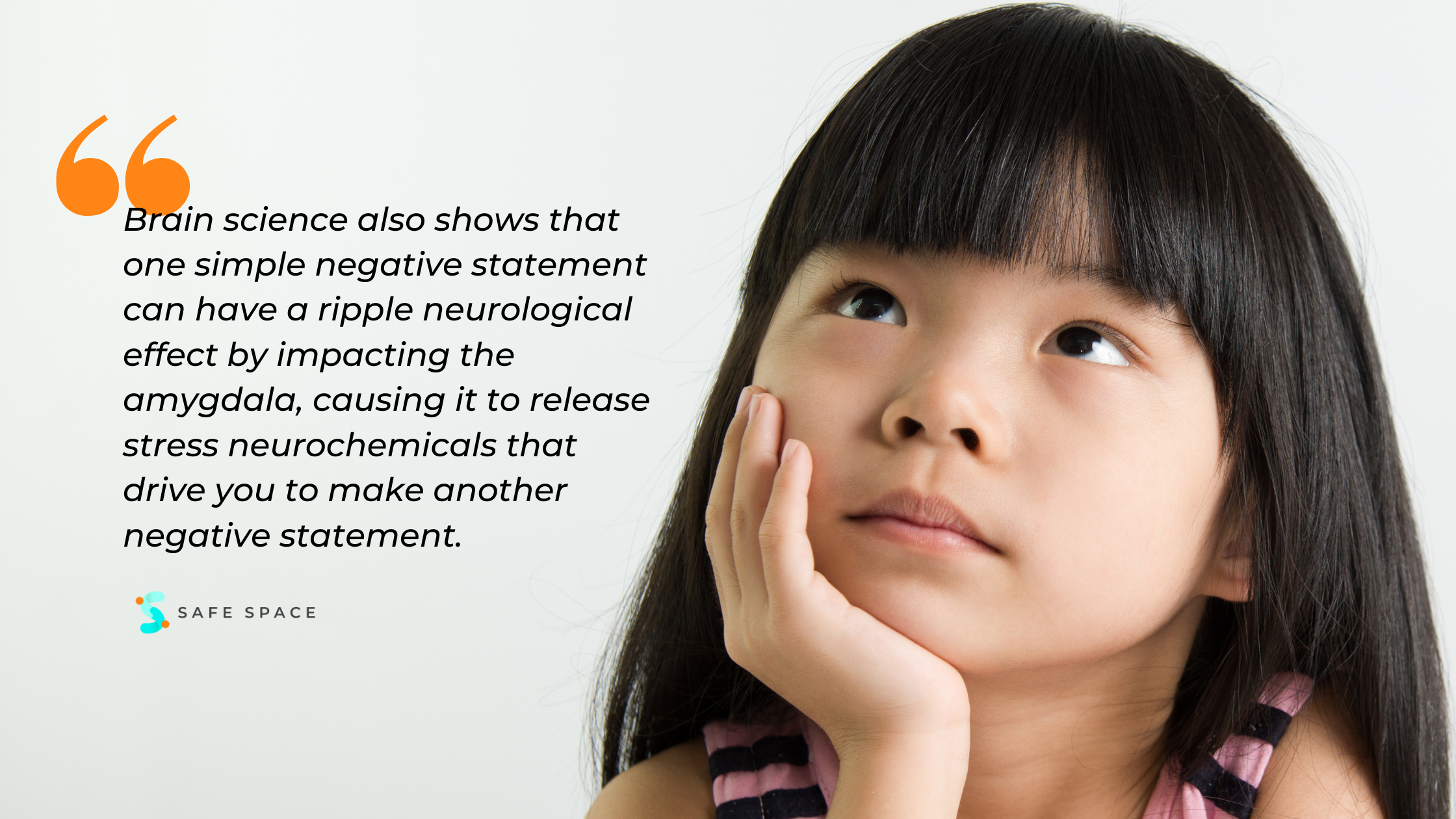Have you heard of the old saying that you should never praise a child directly? Some people believe that even when a child does something good, they should withhold positive comments or statements and not say anything to show that they have done well.
This Asian cultural advice surfaced because people believed that praising a child would lead to misbehaviour or that the child might become prideful. Thankfully, there has not been any proof of positive affirmations causing children to misbehave.
In contrast, evidence shows the exact opposite – Words have the power to change the brain literally. Research shows that “a single word has the power to influence the expression of genes that regulate physical and emotional stress.” (Newberg & Waldman, 2006). This means that when the right words are used, a person can feel calmer and less anxious during stressful moments.
Studies have shown that the use of words can cause profound psychological changes and significantly impact a person’s quality of life. In fact, negative words will increase anxiety in children who demonstrate higher rates of negative self-talk (Richter, et al. 2009).

For example, in these sad but common scenarios, parents use negative statements like “Stop crying, or I won’t love you anymore” or “If you continue to be naughty, I will give you a way to someone else” – in an attempt to “force” their children to stop behaving in a certain way. When children receive such messages from their parents, who are supposed to be the secure attachment for them, they feel uncertain about the availability of their parent’s love for them, causing them to worry constantly and inevitably become vulnerable to anxiety (Carlson & Sroufe, 1995). This sense of anxiety can also contribute to developing insecure attachment, which can lead to many emotional issues in adulthood like low self-esteem or poor emotional regulation (Bowlby, 1982)
Brain science also shows that one simple negative statement can have a ripple neurological effect by impacting the amygdala, causing it to release stress neurochemicals that drive you to make another negative statement – and many more (Newberg & Waldman, 2006). This means that not only will the negative statements snowball, they may also affect the person’s quality of life and self-worth because of all the negative thoughts about the self and others!
Can you imagine the kind of notable neurological changes that will happen when you speak positive words instead? For starters, the frontal lobe will be stimulated. It can promote cognitive functioning, which leads to positive self-perception, a key factor for developing resilience and maintaining a life of quality. When a child has a positive perception of the self, it can build their self-esteem and resilience.
So if you haven’t been speaking positive words to your child, start today.
Remember: Words become our language, and our language can affect the trajectory of our lives.
About the Author
Priscilla is a passionate and experienced psychotherapist with a demonstrated history of working with children, adolescents, and adult clients. She values the authentic self, and her conversational style is relational, relaxed and real; bringing a non-judgemental and warm presence to the session while focusing on the individual’s needs.



